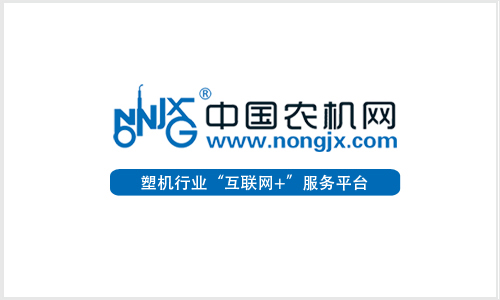Filament Winding Fittings,Marine Pert Plastic Pipe,Marine Pert Plastic Pipe Fittings,Marine Pert Plastic Pipe For Water Supply,Marine Polyethylene of raised temperature resistance Jingjiang Haihong Plastic & Rubeer Science -Technology Co.,Ltd , https://www.marineplasticpipe.com
The focus of Argentina's future economic planning: agricultural export competitiveness and productivity in the industrial sector
[China Agricultural Machinery Industry News] In recent years, the decline in international commodity prices has had a serious impact on the Argentine economy, which relies on agricultural exports. How to optimize the economic structure to withstand external risks has once again become a hot topic in the Argentine economic community . Jorge Castro, director of the Argentine Institute for Strategic Planning, said that strengthening the competitiveness of agricultural exports while increasing the productivity of the industrial sector should be the focus of Argentina's future economic strategic planning.
The focus of Argentina's future economic planning: strengthening agricultural export competitiveness and increasing industrial sector productivity
In recent years, the fall in international commodity prices has had a serious impact on the Argentine economy, which relies on agricultural exports. How to optimize the economic structure to withstand external risks has once again become a hot topic in the Argentine economic community.
Jorge Castro, director of the Argentine Institute for Strategic Planning, recently said in an exclusive interview with Xinhua News Agency that strengthening the competitiveness of agricultural exports while increasing the productivity of the industrial sector should be the focus of Argentina's future economic strategic planning.
For a long time, the Argentine economic development strategy has swayed between the “extroverted strategy†of agricultural export priority and the “inward-oriented strategy†characterized by export substitution industrialization. Castro believes that the agricultural export sector provides funding for industrialization and is an important basis for promoting industrialization. At any time, industrialization cannot be achieved at the expense of the agricultural sector, and the reaction strengthens the basic position of the agricultural sector in the economy.
He said: "At present, the demand for world food and agricultural products is growing rapidly. In the long run, the market is good. Argentina is one of the world's major food producers and exporters. It has a strong competitive advantage in agricultural production and technology. We must maintain this competitive advantage, and we must continue to expand the scale of agricultural production and strengthen our competitiveness through the development of new technologies."
Argentina has many favorable conditions for the development of export agriculture: the 760,000 square kilometers of Pampas grassland has a mild and humid climate, and the soil humus is several meters thick. It is considered to be one of the world's most suitable agricultural production areas. The main agricultural production area is far from the export terminal. They are all less than 250 kilometers and are easy to transport. In the past 20 years, with the widespread use of technologies such as genetically modified, no-till and fine agriculture, the cultivated area has been expanding and the agricultural production efficiency has been greatly improved.
However, compared with the export scale and competitiveness of the agricultural sector, Argentina's industrial exports have lagged behind and the weakness is obvious. Castro said that two-thirds of Argentina's exports are related to agricultural products, mainly in agricultural machinery and soybean oil, soybean meal, soy flour or corn flour. He believes that while deepening the competitive advantage of agriculture, it should enhance the competitiveness of the industrial sector, especially the added value of the industrial sector's export.
Castro mentioned that the international trade deficit of the Argentine industrial sector exceeded $32 billion last year. An important reason is Argentina’s import substitution strategy, which is based on the domestic consumer market and is mainly used to replace the past dependence on imports. The drawback of this model is that the domestic industrial sector under government protection is inefficient and cannot obtain sufficient international competitiveness to support its exports.
Castro, who pursues the principle of comparative advantage, believes that “any country does not want to export anything but exports it, but exports products that are more efficient than other countries. Argentina must get rid of export dependence on a single sector of agriculture. It is necessary to increase the production efficiency of the industrial sector, condense more human capital and technology content in products, and enhance the competitiveness and added value of industrial exports."
In terms of how to improve the productivity of the industrial sector, Castro said: "The most urgent task is to expand investment, prioritize, first of all to increase investment in backward infrastructure, especially in the north of the economic and social development index is relatively backward and In the northwestern region, infrastructure such as water supply, power supply, highways, and communication networks severely restricts corporate investment behavior and limits the development potential of these regions."
Castro believes that the second priority investment area should be education. He said that Argentina has always been one of the countries with high education level in Latin America. However, the economic downturn in recent years has caused the decline in the quality of public education. The lack of human capital investment has led to a shortage of talents in many industries. In addition, the government should also introduce policies to encourage technological innovation and entrepreneurship, accelerate the transformation of scientific research results into the market, and expand the proportion of exports of intangible trade such as technology and knowledge.
(Original title: How Argentina gets rid of agricultural export dependence - Interview with Jorge Castro, Director of the Argentine Institute for Strategic Planning)